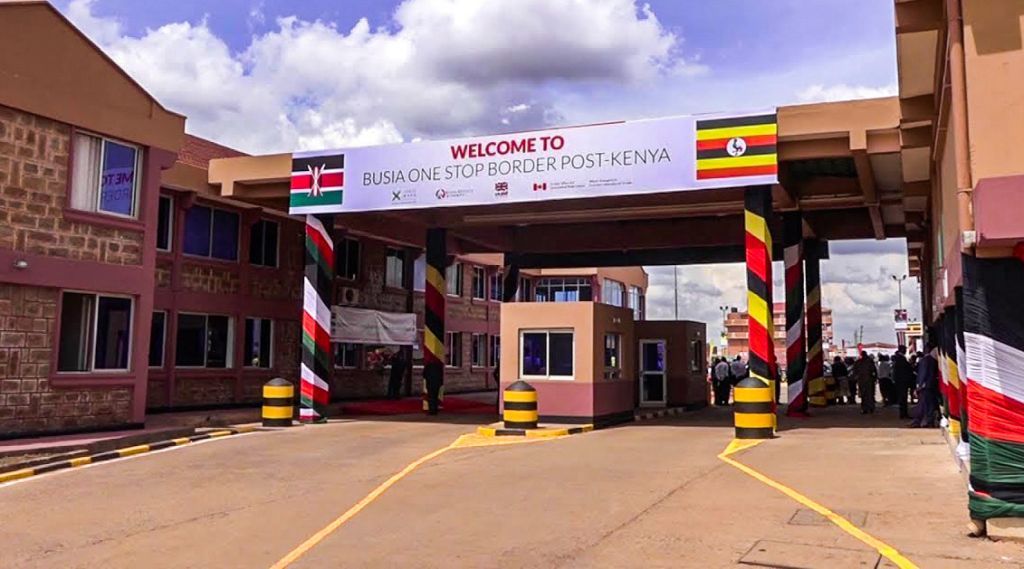The African Continental Free Trade Area and Doing Business Online

Dillys P. Mundrugo is an ICT consultant with a passion…
The implementation of the African Continental Free Trade Area (AfCFTA) agreement ushers in an exciting new dawn for business and investment opportunities for the participating countries and its citizens in the coming years. Its significance and potential impact cannot be overestimated as this becomes the largest free-trade area in the world, in terms of the number of participating countries, since the formation of the World Trade Organization. With the removal of tariffs on 90% of goods and allowing free access to commodities, the continental barriers to trade will be lowered, creating opportunities that could only have been dreamt of before.
The general objectives of the agreement are to: [1]
- Create a single market, deepening the economic integration of the continent;
- Establish a liberalized market through multiple rounds of negotiations;
- Aid the movement of capital and people, facilitating investment;
- Move towards the establishment of a future continental customs union;
- Achieve sustainable and inclusive socio-economic development, gender equality and structural transformations within member states;
- Enhance competitiveness of member states within Africa and in the global market
- Encourage industrial development through diversification and regional value chain development, agricultural development and food security; and
- Resolve challenges of multiple and overlapping memberships
The AfCFTA will have great effects on trade, tourism, agriculture, mining, manufacturing and even education across the African region leading to economic transformation across the continent.
While the AfCFTA is a source of much hope and excitement, we cannot ignore the other critical aspects that come with opening up regions for trade. This includes things like the commitment to quality of service delivery, intellectual property rules, competition and even the regularization of e-commerce, all of which will require continuous negotiations and improvements over time.
Are there hurdles facing the new trade area?
Yes.
Intra-Africa trade has been historically low with intra-African exports at 16.6% of total exports in 2017, compared with 68% in Europe and 59% in Asia, pointing to untapped potential. [2]
There will be a need to make way for easy and quick facilitation of people and goods in Africa because currently there is so much fragmentation with economies at widely varying stages of development. For this to work out, creating supportive policies, eliminating monopolies and stamping out uncooperative behavior will need to be looked into.
Infrastructure and border jams
While many countries have come a long way in improving their road and rail networks, in a bid to improve trans national movement of goods, we cannot ignore the delays that currently exist at most border points, with countless stamps, signatures and certificates required to move a container from one point to another. These not only pose challenges to those dealing with perishable products but also reduce the number of trips one can make in a given season.
It is no secret that shipping products across the Atlantic may be much cheaper than transporting the same volume of goods across two borders in Africa! Most likely even faster.
Global trade rules
Africa should consider the bargaining power it can hold in world trade as a single bloc if they went in as one single market in the face of countries like China and the United States tightening their grip on many nations.
Digital infrastructural challenges
Over the past years, there has been a rapid shift in installation and implementation of internet and communications-related solutions across the continent. More and more people have embraced the new shift with the adaptation of tech-based solutions silently sweeping through all sectors across the continent.
The current technological revolution in Africa cannot be ignored. There are new opportunities in investing in tech-based business incubators in support of innovative solutions that have the potential of not only lifting millions out of poverty but also altering the socio-economic landscape of the African continent in coming years.
In the past few years, we have seen new tech-based developments in all areas not just limited to the business sector. Areas like agriculture, finance, transport, education and government can all attest to taking up new tech tools and solutions that have helped improve their efficiency and service delivery.
It’s therefore fair to say that we have come a long way, but more can still be done.
How? There’s need for affordable and reliable access to internet and telecommunication facilities both in the urban and rural areas of the continent to ensure sustainable engagement at all times. In many areas, the cost of doing business online is either still very high or there’s a lack of reliable connection. All this becomes a bottleneck in the quality and speed of service delivery with some areas being left out of the ongoing digital shift.
Adaptation to technology across Africa
Traditionally, ICT, like medicine, was one of those fields that has been handled with a ‘leave it to the experts’ mentality. Not anymore! More and more people now knowing that they cannot entirely do away with technology in today’s world, have undergone the necessary mind shift needed for embracing technological tools as a way of life and doing business on a day-to-day basis.
It’s interesting to note the number of companies and governments that are currently involved in projects and programs that are aimed at reducing the digital gap in various nations. These projects are great investments in building the capacity of the general populations involved and thereby investing in the future economic sustainability of Africa as a whole. The investments currently going into the tech hubs and reducing the skills gap in Africa will definitely boost the general GDP of the continent in coming years.
Doing Business Online
Coronavirus pandemic boosts online trade in Africa
This year more than ever, people were woken to alternative ways of doing business when many of us were locked down due to the global coronavirus pandemic that is still affecting us globally. Both big and small entrepreneurs were forced to reconsider how to continue serving their clients, manage their teams and remain productive and operational as they worked remotely or with a minimal workforce. Many also came to realize that there is a better way of achieving their daily targets by changing how they work.
Considering all the functions needed to operate a business daily, what organizations needed was a shift towards the use of online solutions and platforms like CRMs (Customer Relationship Managers) and ERPS (Enterprise Resource Planning Software) that allow for the integrated management of main business processes, operations, sales, purchases, inventory, accounting, reporting and teams in real-time from a single platform.
Most people would normally not consider such solutions for small and medium organizations because everything was manageable on Whatsapp and by ‘walking around’. When faced with the challenges of having to deliver results remotely, online solutions make good sense regardless of business size.
Those dealing with product sales had to consider embracing e-commerce platforms and social media sites as channels of reaching their clientele during the lockdown season and beyond.
Fortunately, there are lots of solutions in existence locally and globally that are easy to set up and incorporate with existing business processes as a way of streamlining operations as more and more people consider doing business online as the new normal.
What it takes is an inquisitive mind and the openness to embrace new ways of doing things. Many people are faced with the fear of learning and using new systems since there’s already a preconceived notion that ‘ICT is hard and not for me’. Yet in reality, most of the tools are not as difficult to use as they appear to be.
As businesses grow bigger and serve more and more clients, it becomes very expensive to run brick and mortar (physical) establishments without the assistance of technology and mechanization.
What’s needed to work online?
Here are some things to consider when thinking of shifting some functions of the business online:
- A Website. Originally considered by many as an online brochure, has to become more than just a marketing tool. As a starting point, dynamic and mobile-friendly websites are needed since most people now use mobile devices more than they use laptops. Dynamic sites allow for frequent updates and changes to reflect what’s on ground. When management tools and productivity applications are added to these sites, they suddenly become management tools with customer support systems, billing applications, e-commerce solutions and even offer a communications platform for teams allowing all staff members to always be on the same page; enabling companies to manage all their tasks and resources more efficiently online.
- Clarity about your current processes and what needs to go online goes a long way in assisting those setting up these systems in making the best choice for your organization.
- Gradually building an online culture in the organization begins with the availability of an internet solution that the whole team can access or have access to wherever they are. Internet and communications costs become essential operations costs for today’s businesses. With the prohibitive costs of internet in many places, business owners will need to research to find reliable and affordable alternatives for their teams.
- We can’t talk about information handling without considering information security and data handling. The responsibility of ensuring data is handled and transmitted securely and kept away from those who would like to mishandle it falls on our shoulders. There’s a need to ensure that our websites have SSL certificates (those padlocks on web pages) that not only guarantee authenticity but also provide safe environments for online transactions. These certificates can be obtained online and added to websites.
- Organizations should conduct backup operations for their information and have a plan in place concerning the frequency of these back-ups and the location that the backed-up data will be kept. We all know what happens in the event of data loss. Unfortunately, we rarely give back-up operations the importance they are due.
As they say, there is need to ‘put our house in order’ as we prepare to engage with others. This is a good time to begin incorporating ICT tools into our day-to-day operations as a way to help us do more even with fewer resources. When working online becomes a way of life, we’ll not have to run around looking for new solutions to handle the inflow of opportunities that are definitely heading our way with the opening of African borders for trade.
My prayer is that the harvest season will not find us without granaries to store and preserve the food.
Footnote references
Tralac, “Status of AfCFTA Ratification.” Available at: www.tralac.org/resources/infographic/13795-status-of-afcfta-ratification.htm
[1] https://www.tralac.org/documents/resources/african-union/2162-afcfta-agreement-legally-scrubbed-version-signed-16-may-2018/file.html[2] https://unctad.org/press-material/facts-figures-0What's Your Reaction?
Dillys P. Mundrugo is an ICT consultant with a passion for conducting research and implementation of practical tech solutions for businesses. She is currently involved in rolling out OpenEA instant online store solutions for businesses, a product that enables the setup and management of easy-to-use e-commerce solutions for stores, restaurants and food deliveries.
















